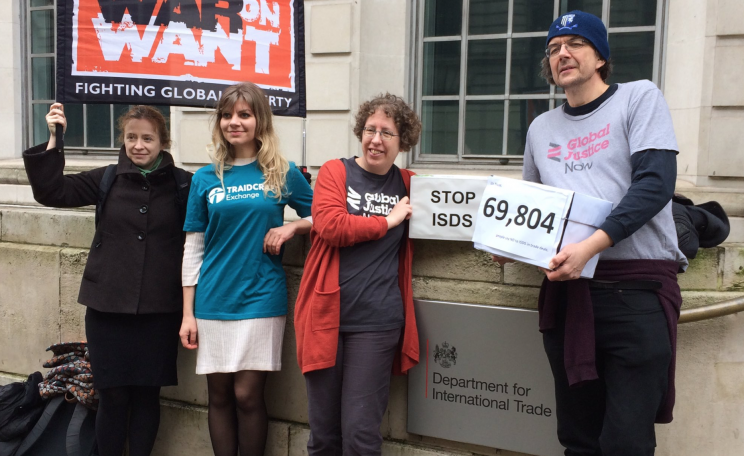Activists were celebrating a damning ruling today on the UK's legal system which could now make it easier for individuals and NGOs to protect the environment.
Under the Aarhus Convention, signed by the UK in 1998, people should not be denied environmental justice because of the unreasonable financial risks of bringing a case to court.
A team of legal activists had brought the case to the UN committee overseeing this Convention arguing that the UK was in breach and that bad environmental decisions were not being challenged.
Prevented from justice
Recently, the Marine Conservation Society was unable to mount a legal challenge against allegations of toxic waste dumping near the Port of Tyne, Newcastle, because of fears over the potentially crippling costs of losing the case.
In another example cited by the legal activists, a local resident was faced with a legal bill of more than £80,000 after challenging permission given to a cement factory to burn tyres because of health fears over the fumes on the local community.
The Aarhus Convention Compliance Committee agreed and said the UK's legal system did not, 'remove or reduce financial barriers to access to justice'. It called on the UK to 'undertake practical and legislative measures to overcome the problems'.
A victory for green groups
A coalition of environmental groups, including Friends of the Earth, WWF and RSPB, who have been campaigning on the issue welcomed the decision and said the UK now had 'no option but to amend the cost rules so people and environmental groups can go to court to protect the environment.'
The legal activists who brought the case to the UN, ClientEarth, said the decision was 'game-changing' for anyone fighting for their environmental rights.
'At the moment, the government and industries can ride roughshod over their environmental responsibilities, confident that the legal system’s failings will make challenges impossible.
'If the government’s word is to mean anything on the international stage, it must move effectively and decisively to remedy the gross unfairness of the UK legal system,' said CEO ClientEarth James Thornton.
UK given warning
The UK has already been warned by the EU Commission about the unfair cost of challenging decisions that impact on the environment. In March, 2010, EU Environment Commissioner Janez Potocnik threatened legal action if the UK ignored the request.
A review by Lord Justice Jackson earlier this year may go someway, if accepted, to meeting that request. It recommended that people bringing civil cases should not normally be at risk of having to pay the other side's costs. However, it did not indicate whether people would be aware of their liability for costs beforehand.
In reference to that review, a spokesperson for the Ministry of Justice admitted that high costs under the existing legal system had become a 'serious concern' and that a consultation would be launched this Autumn to 'achieve significant costs savings, whilst still enabling those who need access to justice to obtain it'.
In relation to the Aarhus ruling, a government spokesperson said it was, 'carefully considering the Committee’s recently published draft findings along with our comments for submission to the Committee in order to assist the Committee finalise its findings.'
Useful links
The Aarhus Convention
| READ MORE... | |
 |
NEWS ANALYSIS How the legal system is preventing environmental justice Individuals and local campaign groups are being prevented from challenging environmental damage because of the potentially crippling cost of legal action |
 |
NEWS Legal costs review may not help environmental cases Major judicial report may not help NGOs and individuals challenge environmental damage in courts without facing prohibitive financial risk |
 |
NEWS Oil giant Total pleads guilty in Buncefield case Oil company admits guilt and expresses ‘regret’ over safety breaches after oil depot explosion that caused injuries and environmental damage |
 |
INVESTIGATION Can lawyers save the world? A new species of eco-lawyer is emerging from the legal undergrowth. James Thornton advocates a wig-and-gown approach so campaigners can strengthen their case against unethical corporations |
 |
NEWS Activists fight to save 'people's law on the environment' Ruling would allow NGOs and individuals to challenge environmental damage in courts without prohibitive financial risks |








